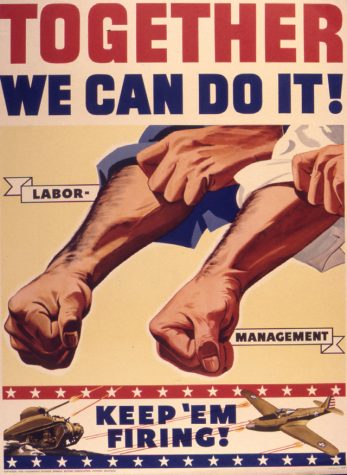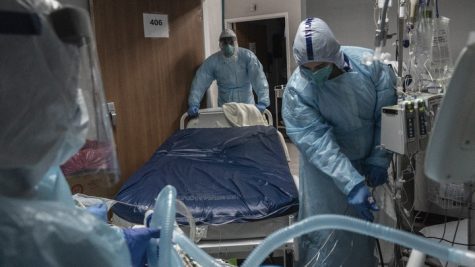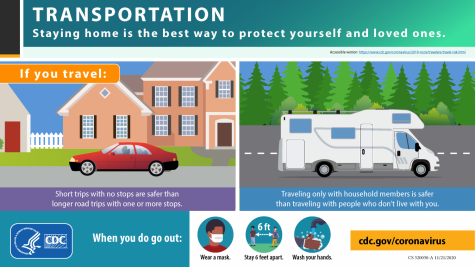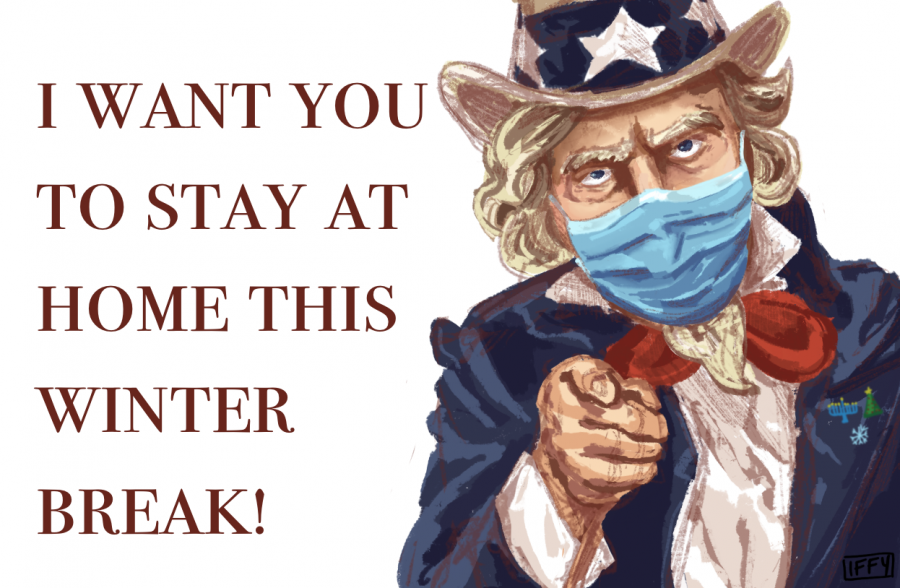I Want You to Stay at Home This Winter Break!
Uncle Sam asks the viewer to stay at home this winter break. As the winter holidays come by during the 10th month of the pandemic, many families are at a lost on what to do about the holiday travels.
Dec 24, 2020
I know it is difficult to imagine the pandemic as a war because we don’t have posters of Uncle Sam telling us to wash hands or a face to an enemy we can direct our frustrations at. But the fact of the matter is: This is a war. At the time of writing this, we have lost over 310,699 American lives to the virus and that number is sure to rise if families choose to travel during winter break.

It’s been 10 months of our “extended spring break” and the COVID-19 pandemic is stronger than ever. San Diego County is in lockdown, has a 10 p.m. curfew, and in the 11 counties of Southern California, the ICU capacity reached 0%. Yet, we still have plenty of people traveling and refusing to make the sacrifices necessary to eliminate the virus.
Just like in times of war, we need to make sacrifices for the greater good of our country and communities. The only difference is that instead of rationing sugar and spandex, we need to ration our interactions with others outside of our households.
For many students like junior Mia Humphrey, their families are considering sacrificing their winter break travels to see loved ones in favor of not spreading the virus.
“Every year my family usually goes up to San Francisco and San Jose to see family out there and we spend the holidays with my aunt’s family but because of COVID-19, we’re not sure if we’re doing it or not because we have to be super considerate of my family’s health,” said Humphrey.
Making the plans to travel safely during the pandemic can be stressful to say the least. Regardless if you choose to travel via car, plane, or RV, there will still be a possibility you will catch and eventually spread COVID-19 in the community. Due to the risk and rise in cases around the U.S., the CDC has advised against traveling during the holidays to prevent hospitals from getting overwhelmed.
“Hospital capacity expands like an ‘accordion,’” Dr. Bilal Mateen told NPR. “You overwhelm even those capabilities. And you get to the point where space, staff and stuff are really not being consistent with the level of care that we are used to delivering.”
The increase of patients in the ICU not only overworks our health care workers but it also means if someone has a non-COVID-19 related emergency, like a car crash or a heart attack, they may not get the care they need due to the lack of vacancy. Even more so, overworked hospitals can negatively damage the mental health of health care workers.

Just like soldiers fighting on the frontlines, medical workers are traumatized every day watching multiple patients die during their shifts and being unable to help everyone.
Prior to the pandemic, my mother was the only registered nurse at a nursing home and had to tend to three wards of patients. She often had to work overtime to get to all of her patients. I vividly remember her coming home and crying because of how much she wished she could help each patient more but didn’t have the time to. I can’t even begin to imagine what it must be like to be working at a COVID-19 ward, surrounded by patients struggling to breathe with limited resources to protect themselves and equipment to care for the patients.
For this reason, .
The longer we refuse to follow precautions, the more prolonged this pandemic will be.
On Wednesday, Dec. 16, the Carlsbad Unified School District announced that high schools and middle schools will not begin hybrid learning on Jan. 5 in favor of reopening on Jan. 25 to hopefully “give health professionals the time to test, trace, isolate and treat infections spread over the winter break.”
Although hybrid students have an extra three weeks before they come back, to get tested and quarantine, it’s still important that students stay at home to keep the return date for hybrid learning as Jan. 25. If not, there’s a possibility for hybrid learning and extracurricular activities to be pushed back further or even be scrapped.
For Senior Hannah Katz and her Theatre 3 cohort, they know that a rise in cases and a lack of prudence can lead to there being no performances.
“Us theatre kids are really careful when it comes to certain things because we are really passionate about [it] and don’t want to mess up,” said Katz. “It is a really important time for you to… be thinking about how your choices are going to affect other people. It may not affect you, but it will affect the people around you.”

For teachers, especially those at high risk, returning to school to teach hybrid learning, students and families traveling is a concern.
“I know that students and families are already [traveling] and with the holidays and wanting to visit family is gonna … push more people to travel,” said nutcracker syndrome survivor and Bio-Med Teacher Mrs. Bachman. “Being someone who is at a bit a higher risk, it is very nerve-racking [thinking] ‘Am I going to be safe,’ ‘If I get sick at work, how do I get sick days?’, ‘ How bad is it going to be?’”
Schools, neighborhoods and simply being outside should never be a source of anxiety for the public. 10 months in we are all fed up with constantly being worried about the virus and are starting to get hasty with our actions since it feels like precautions are doing anything while cases rise higher every day. When you start to feel this way, I propose we look towards the faces of our loved ones to remind ourselves to stay vigilant and make sacrifices this holiday season for the greater good. If each of us stands together as a united front, we can end the war against COVID-19. But that will only work if we all do our part.
Please stay strong this holiday season and stay safe out there!






